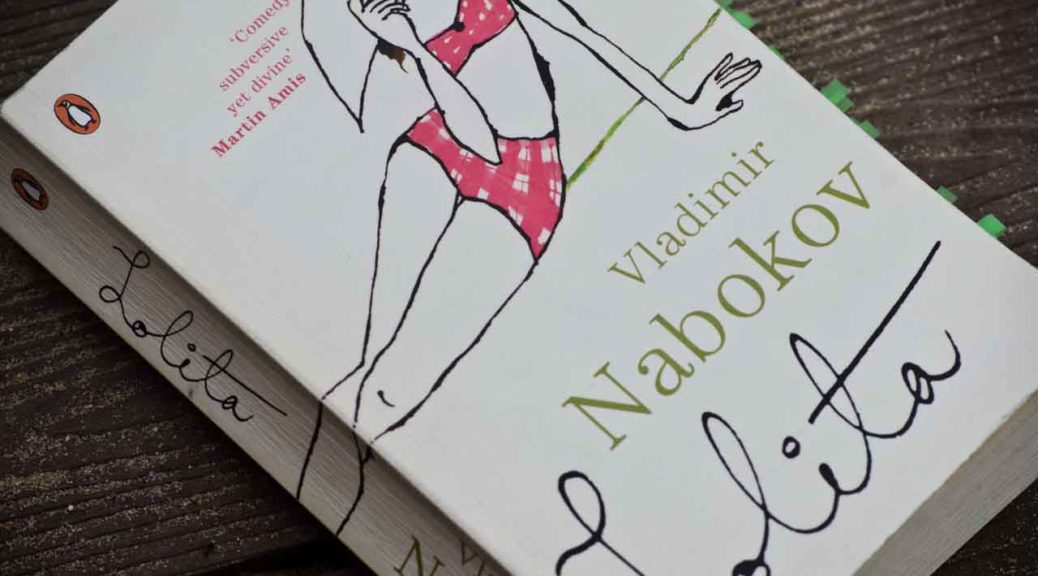Nabokov, Vladimir Vladimirovich. Lolita. Penguin, 2006. First published 1955.
Also Vladimir Nabokov On a Book Entitled Lolita

Also Vladimir Nabokov On a Book Entitled Lolita
“The perfect novel from which to make a movie is, I think, not the novel of action but, on the contrary, the novel which is mainly concerned with the inner life of its characters. It will give the adaptor an absolute compass bearing, as it were, on what a character is thinking or feeling at any given moment of the story. And from this he can invent action which will be an objective correlative of the book’s psychological content, will accurately dramatise this in an implicit, off-the-nose way without resorting to having the actors deliver literal statements of meaning.”
“I think that for a movie or a play to say anything really truthful about life, it has to do so very obliquely, so as to avoid all pat conclusions and neatly tied-up ideas”
The ideas have to be discovered by the audience, and their thrill in making the discovery makes those ideas all the more powerful. You use the audience’s thrill of surprise and discovery to reinforce your ideas, rather than reinforce them artificially through plot points or phoney drama or phoney stage dynamics put in to power them across.”
“Style is what an artist uses to fascinate the beholder in order to convey to him his feelings and emotions and thoughts. These are what have to be dramatised, not the style.”
“Often, at one point, the writer expects a silent look to get across what it would take a rebus puzzle to explain, and in the next moment the actor is given a long speech to convey something that is quite apparent in the situation and for which a brief look would be sufficient. Writers tend to approach the creation of drama too much in terms of words, failing to realise that the greatest force they have is the mood and feeling they can produce in the audience through the actor. They tend to see the actor grudgingly, as someone likely to ruin what they have written, rather than seeing that the actor is in every sense their medium.”
“a writer-director is really the perfect dramatic instrument; and the few examples we have where these two peculiar techniques have been properly mastered by one man have, I believe, produced the most consistently fine work.”
“Any art form properly practised involves a to and fro between conception and execution, the original intention being constantly modified as one tries to give it objective realisation. In painting a picture this goes on between the artist and his canvas; in making a movie it goes on between people.”
To Read:
Found the Cinema Library at BIFF hill. shhhhh. no backpacks.
“Kubrick is fiercely concerned with the accuracy of the small details that make up the background of his films, because he feels that helps the audience to believe what they see on screen.” viii
“Kubrick sometimes nursed ideas over long periods before he was able to bring them to fruition.” viii
“directing a film can be like trying to write War and Peace in a bumper car at an amusement park, when you finally get it right, there are not many joys in life that can equal that feeling.” p. xii
Dream Story by Arthur Schnitzler
Clean Break by Lionel White
To Read at the library:
book of essays and interviews on Wes Anderson
World Cinema by Geoffrey Nowell-Smith
John Ford
Planet Hong Kong by David Bordwell
Print the Legend: The Life and Times of John Ford by Scott Eyman
The Passion of David Lynch
books on Stanley Kubrick
Interviews with Scorsese, Ridley Scott, Kubrick, Bertolucci, Michael Mann.
books on Kurosawa
Lock, Stock and Two Smoking Barrels screenplay
Mediated Sex: Pornography and Postmodern Culture.
Goodfellas script
books on Cinematography
Eyes Wide Shut screenplay
The Making of Blade Runner
Boogie Nights script
Dark City (book on film noir)
Kubrick vs Scorsese from Leandro Copperfield on Vimeo.
Unfinished: Napoleon. Aryan Papers.
Another doc
Two books by Gustav Hasford online. The Short-timers and its sequel, The Phantom Blooper.
“Hasford was, by Herr’s own description, ‘a scary man, a big, haunted marine’, whom Kubrick was determined to meet. ‘I advised him against it,’ recalls Herr. ‘I told Stanley I didn’t think they’d get on.’ Kubrick insisted, Hasford duly came over to Britain and there was a dinner during which Kubrick passed Herr a note saying: ‘I can’t deal with this man.’ From then on, Hasford was dismissed from the maestro’s presence. ” (from http://www.theguardian.com/books/2000/jul/16/film)
![1542752[1]](http://www.migueldelosandes.com/wp-content/uploads/2014/12/15427521.jpg)
the short-timers pdf at http://msuweb.montclair.edu/~furrg/i2l/shorttimers.pdf
the phantom blooper html at http://msuweb.montclair.edu/~furrg/Vietnam/blooperall.html